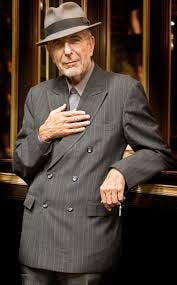We were talking earlier this week about artists whose best-known work can overshadow other, equally worthy gems in the catalog. Leonard Cohen is another example of this: He wrote boatloads of magically terse and poetic works of every sort, love songs and murder ballads and existential confessions. Still, he’s mostly known for “Hallelujah” – the stirring, reverent gospel anthem that’s been covered by half of the known singing universe.
While reading about the horse trading in Congress this week and the ensuing pundit laments about the perilous shape of democracy, I remembered Cohen’s caustic song “Democracy,” from his 1992 The Future.
It had been awhile since I listened to this record, which combines love rhapsodies with doom chronicles. “Democracy” was as pointed as ever, its instrumentation a necessary touch grandiose to scale with Cohen’s meditation on the experiment. It was the other “core” songs – “The Future,” “Waiting For the Miracle,” “Anthem,” “Closing Time” – that caught me off guard. In a chilling way. Here was someone talking about the future and describing it as a place of randomness where life is cheap and it’s impossible to measure or trust anything. A sleek dystopia. Make no mistake: We’ve arrived.
The blizzard of the world
Has crossed the threshold
And it has overturned
The order of the soul.
Or maybe he was talking about Facebook?
Then “Waiting for the Miracle,” which isn’t “about” QAnon in any direct way but sure does raise some questions about blind belief. And “Closing Time,” a scene in a bar that becomes an inquiry into escapism and delusion. And “Anthem,” a sort of secular “Hallelujah,” which has one of the great Leonard Cohen lines of all time: “There is a crack in everything/That’s how the light gets in.”
I once did a “meet the author” interview with Liel Leibovitz, the author of one of the many books on Cohen -- A Broken Hallelujah: Rock and Roll, Redemption, and the Life of Leonard Cohen. Several times he used the word “prophet” to describe Cohen, and said it each time with serious conviction. I pushed back, suggesting that the term might be too much of an honorific. Now I wonder if he was right.





